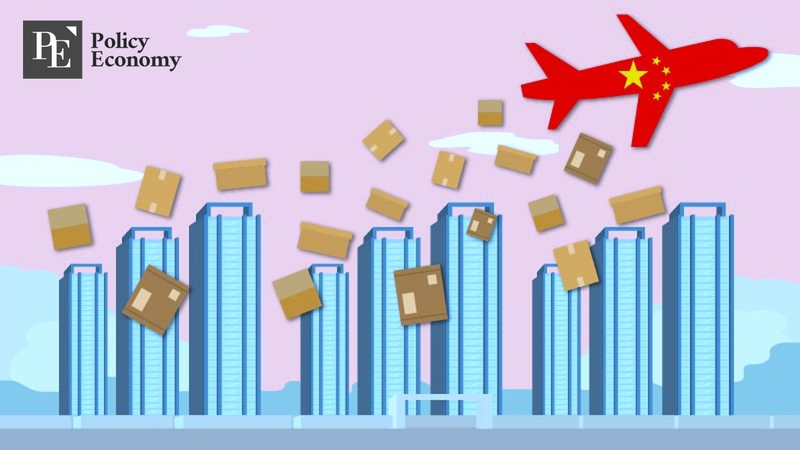France Moves to Tighten Regulations on Ultra-Cheap Chinese Imports Amid U.S. Tariffs
Input
Modified
France Pushes to Impose Fees on Low-Cost Small Parcels from China Moves to Abolish VAT Exemptions for Imports Under €150, Tightening Regulations on C-Commerce Despite Regulatory Crackdown, Chinese Platforms Expand Global Market Influence

Amid growing concerns that an influx of ultra-low-cost goods from China is eroding the European market, France and other European Union (EU) member states are stepping up regulatory measures targeting Chinese e-commerce platforms such as AliExpress, Temu, and SHEIN. France is moving to impose fees—effectively functioning as tariffs—on low-value imported parcels, while the EU is pursuing the abolition of the VAT exemption for goods priced under €150. Framed under the pretexts of safety and environmental concerns, these measures are widely seen as an attempt to put the brakes on the rapid rise of C-commerce.
France Targets E-Commerce Giants with New Fees
As the United States intensifies its tariff campaign against Chinese imports, France is preparing to implement its own crackdown on ultra-cheap Chinese goods flooding into the European market. According to a Bloomberg report on April 29, the French government plans to impose handling fees on low-value e-commerce parcels, effectively acting as a tariff. This preemptive move comes ahead of a broader EU-wide customs reform set to take effect in 2028.
Amélie de Montchalin, France’s Minister for Public Accounts, stated that the fees will not be levied directly on consumers but will require e-commerce platforms to contribute more to customs inspection processes under the guise of security. As a result, platforms such as Shein and Temu—which have already raised prices due to U.S. tariffs—are likely to face higher costs that will ultimately impact their pricing models in Europe.
Currently, EU law allows imported goods valued under €150 (approx. $160) to be exempt from import duties. European lawmakers have voiced concern that this exemption has enabled a flood of ultra-cheap Chinese goods to enter the EU unchecked. France has already begun targeting fast-fashion brands: as of January 1, 2024, a €5 environmental fee is applied to each article of clothing, set to rise to €10 by 2030. Advertising for such products—both online and offline—has also been banned.
EU Considers Repealing Duty-Free Threshold
The European Commission is also working to eliminate the €150 duty-free threshold altogether. According to a statement, this reform targets Chinese e-commerce platforms such as AliExpress, Temu, and Shein, which have faced growing scrutiny for violating EU safety standards. The EU cited public health and safety risks, noting a sharp increase in unsafe product reports across the bloc.
In 2023 alone, over 3,400 hazardous products were identified, marking a 50% year-on-year surge. A notable case involved the European Toy Industry group, which claimed that none of the 19 toys ordered from Temu met EU safety regulations—and that 18 posed direct risks to children.
E-Commerce Giants Continue to Thrive in Europe
Despite regulatory crackdowns, Chinese cross-border e-commerce platforms continue to flourish in Europe. During the 2023 holiday shopping season, platforms like AliExpress, Temu, and Shein dominated app store rankings in countries such as France, Germany, Italy, and Spain. Alibaba International reported that its gross merchandise volume (GMV) rose 30% year-on-year since December, with nearly 40% growth in transaction volume across Europe.
These platforms are also innovating with a “semi-consignment” or “one-stop” fulfillment model that streamlines operations, warehousing, promotion, shipping, and customer service—lowering entry barriers for third-party sellers and improving operational efficiency.
The expansion of Chinese platforms abroad is strongly supported by Beijing. In December 2023, China’s Ministry of Commerce unveiled a policy package to stabilize foreign trade, including provisions to boost cross-border e-commerce and smart logistics infrastructure. The plan includes regulatory support for overseas warehousing and legal, tax, and compliance services to help domestic firms enter and grow in foreign markets.
This strategic alignment between government policy and platform innovation has allowed China’s digital retail giants to circumvent traditional trade restrictions and gain a foothold in foreign consumer markets—even as regulatory scrutiny in the West intensifies.





















